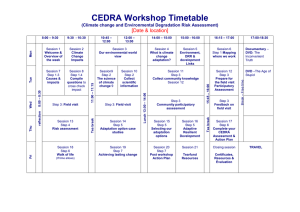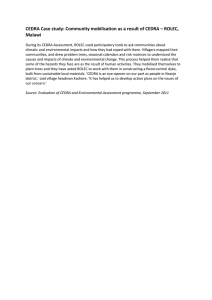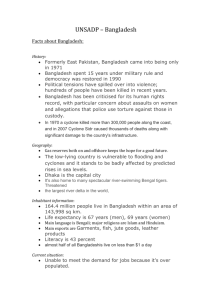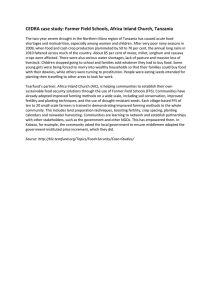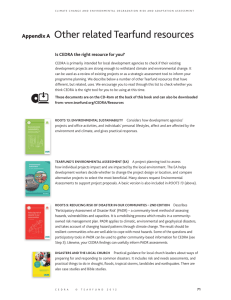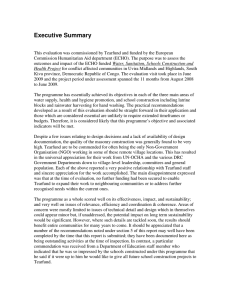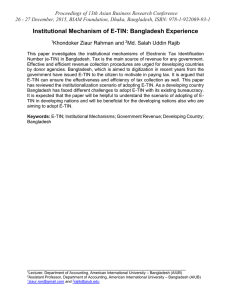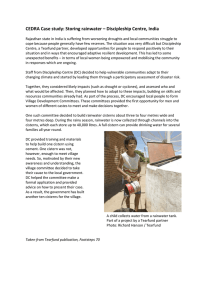CEDRA Case study: Accessing scientific information – partners in Uganda... Bangladesh
advertisement
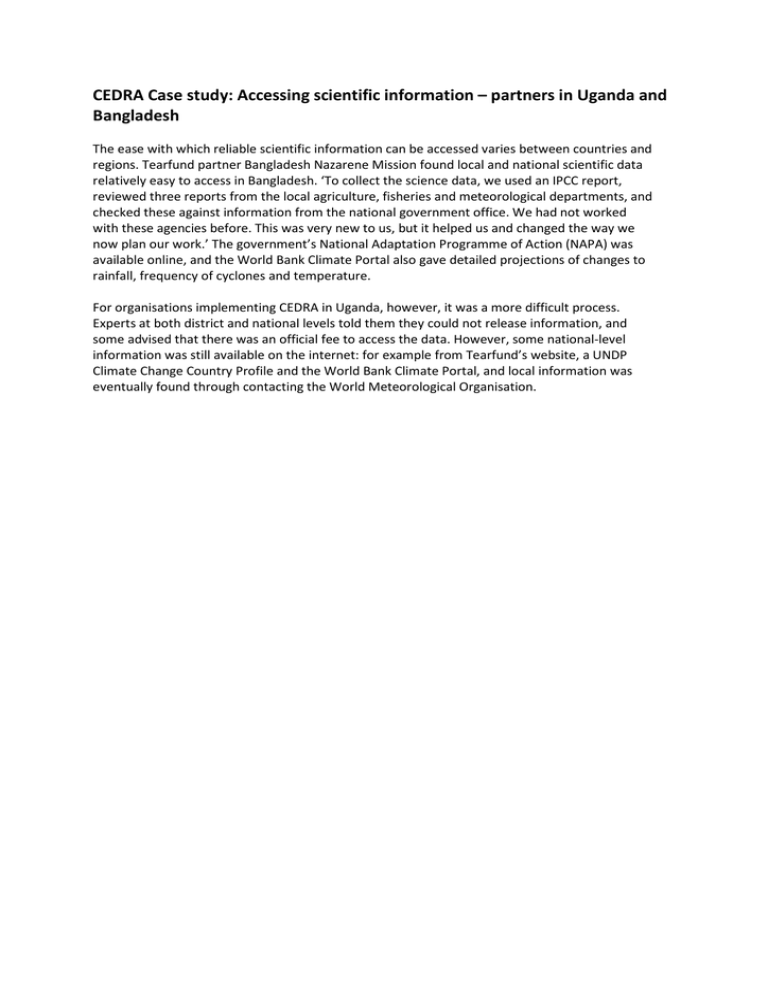
CEDRA Case study: Accessing scientific information – partners in Uganda and Bangladesh The ease with which reliable scientific information can be accessed varies between countries and regions. Tearfund partner Bangladesh Nazarene Mission found local and national scientific data relatively easy to access in Bangladesh. ‘To collect the science data, we used an IPCC report, reviewed three reports from the local agriculture, fisheries and meteorological departments, and checked these against information from the national government office. We had not worked with these agencies before. This was very new to us, but it helped us and changed the way we now plan our work.’ The government’s National Adaptation Programme of Action (NAPA) was available online, and the World Bank Climate Portal also gave detailed projections of changes to rainfall, frequency of cyclones and temperature. For organisations implementing CEDRA in Uganda, however, it was a more difficult process. Experts at both district and national levels told them they could not release information, and some advised that there was an official fee to access the data. However, some national-level information was still available on the internet: for example from Tearfund’s website, a UNDP Climate Change Country Profile and the World Bank Climate Portal, and local information was eventually found through contacting the World Meteorological Organisation.
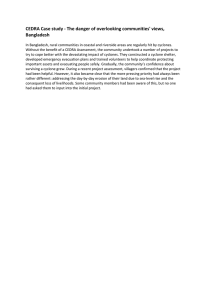
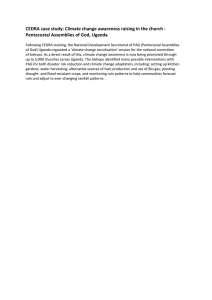
![CEDRA Workshop Timetable [Date & location]](http://s2.studylib.net/store/data/010783715_1-99189760ceb6635a896d485bb938fbab-300x300.png)
